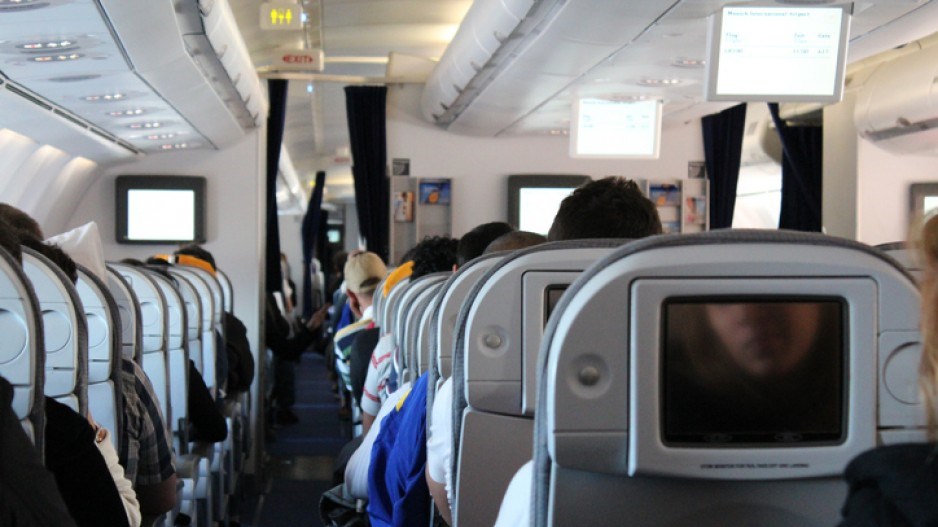Celebrated Paralympian Paul Gauthier and a Calgary engineer with quadriplegia are suing a group of Canadian airlines including Air Canada (TSX:AC) and WestJet, claiming in a class action that people with disabilities are subject to discriminatory air travel charges if they require more than one seat to accommodate their disabilities on international flights.
Gauthier and Christopher Reaume filed a notice of civil claim under the Class Proceedings Act in BC Supreme Court on August 3, naming Air Canada, Air Canada Rouge General Partner Inc., Chorus Aviation Inc., Jazz Aviation LP and WestJet as defendants.
According to the claim, before 2008, the defendants charged “per seat” airfares for domestic and international flights, forcing people with disabilities to pay for additional seats or space to accommodate their conditions. But in 2008, the Canadian Transportation Agency put an end to the practice for domestic flights, finding that per seat pricing “amounted to undue obstacles to the mobility of people with disabilities.” Finding the practice violated the Canada Transportation Act, the agency prohibited Canadian airlines from charging for extra seats on domestic flights.
However, the practice continued on international flights since the CTA’s decision only applied to what’s known as the “federal transportation network.” Attempts to appeal the decision were rebuffed by both the Federal Court of Appeal and the Supreme Court of Canada, according to the lawsuit. While the airlines changed their per-seat pricing policies to “one person, one fare,” people with disabilities still must pay a premium for air travel on international flights “even though there is no principled bases to distinguish between domestic and international flights.”
The transportation agency’s decision, meanwhile, hit home that accessibility and human rights obligations ensure that persons with disabilities “have the same rights as others to full participation in all aspects of society and equal access to transportation is critical to the ability of persons with disabilities to exercise that right.”
Gauthier, a gold medalist in Paralympic boccia and inductee in the Canadian Cerebral Palsy Sports Association Hall of Fame, requires an electric wheelchair and claims he’s taken several domestic and international flights since 2005 where the airlines have required him to be accompanied by an attendant and pay additional airfares. Reaume, of Calgary, also uses a powered wheelchair and travels with an airline attendant on flights, leading to hundreds of dollars in additional airfares.
“Class members have no ability to bargain with the defendants over the defendants’ tariffs or pricing policies or contracts,” the claim states. “The defendants’ fares and contractual terms are a ‘take it or leave it’ proposition, leaving the Class with no alternative but to pay the additional fares to travel by air with the defendants.”
Gauthier and Reaume seek class certification, damages for unjust enrichment and an injunction restraining the defendant airlines from continuing the practice, which allegedly violates provincial consumer protection legislation from coast to coast. The allegations have not been tested or proven in court, and the airlines had not responded to the lawsuit by press time.




